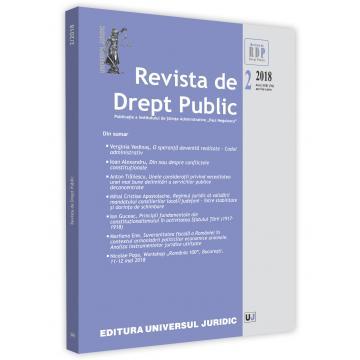Suveranitatea fiscală a României în contextul armonizării politicilor economice unionale. Analiza instrumentelor juridice utilizate
The tax sovereignty of Romania in the context of the harmonization of the Union economic policies. Analysis of the legal instruments used
Author(s): Marilena EneSubject(s): Law, Constitution, Jurisprudence, Constitutional Law, Civil Law, Public Law, EU-Approach / EU-Accession / EU-Development, Fiscal Politics / Budgeting, EU-Legislation
Published by: Universul Juridic
Keywords: EU provisions; taxation principle; fundamental treaties; fiscal sovereignty;
Summary/Abstract: Fiscal sovereignty of the Member States is considered to be as one of the fundamental EU principles, as it is unanimously accepted by the doctrine that the states did not transfer the fiscal competency to the European Union. This principle is not explicitly mentioned in the fundamental treaties of the European Union, but it is the result of the interpretation of the provisions from the fundamental treaties. At first, in the article it is analysed the concept of sovereignty in Romania in order to explain the principle of fiscal sovereignty and its limitations adopted at the union level. Fiscal sovereignty is defined, in this article, as the right of a state to determine the content of taxation and fiscal policies independently, without the need for any approval or intervention by another state or external powers. Subsequently, it is included a short review of the fiscal sovereignty as resulted from the interpretation of the fundamental treaties of the European Union and the potential impact on the legislation of the member states. As it is mentioned in the doctrine, the Member States gradually waived their fiscal sovereignty, which was affected by the duties transferred to the European Union in the fiscal area, through various regulations, but especially through the ones establishing the budgetary policy. An important conclusion of this analysis is that the fiscal sovereignty of the Member States is significantly limited by the EU provisions which are not directly regulating taxation principle or taxes.
Journal: Revista de Drept Public
- Issue Year: 2018
- Issue No: 02
- Page Range: 105-115
- Page Count: 11
- Language: Romanian
- Content File-PDF

